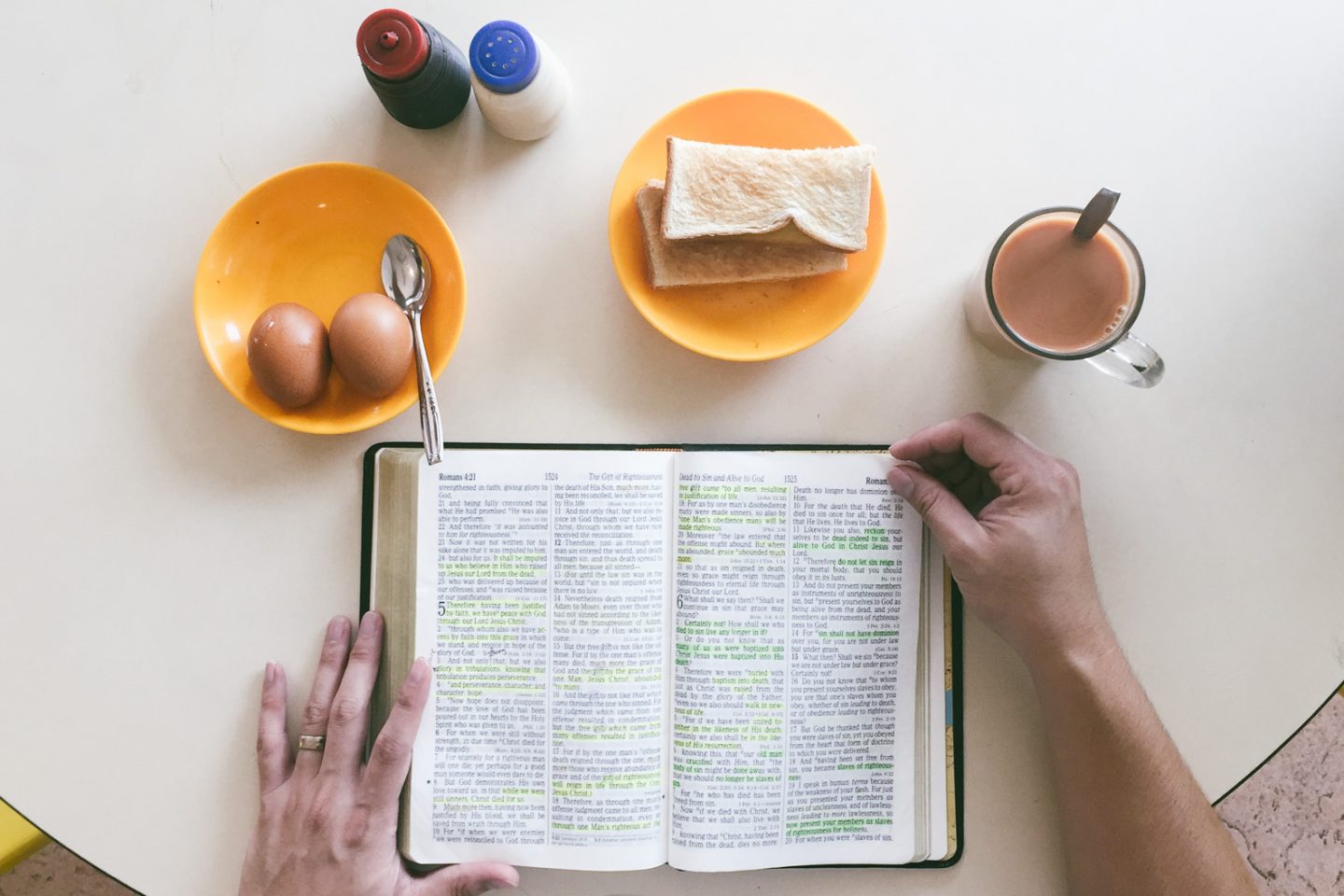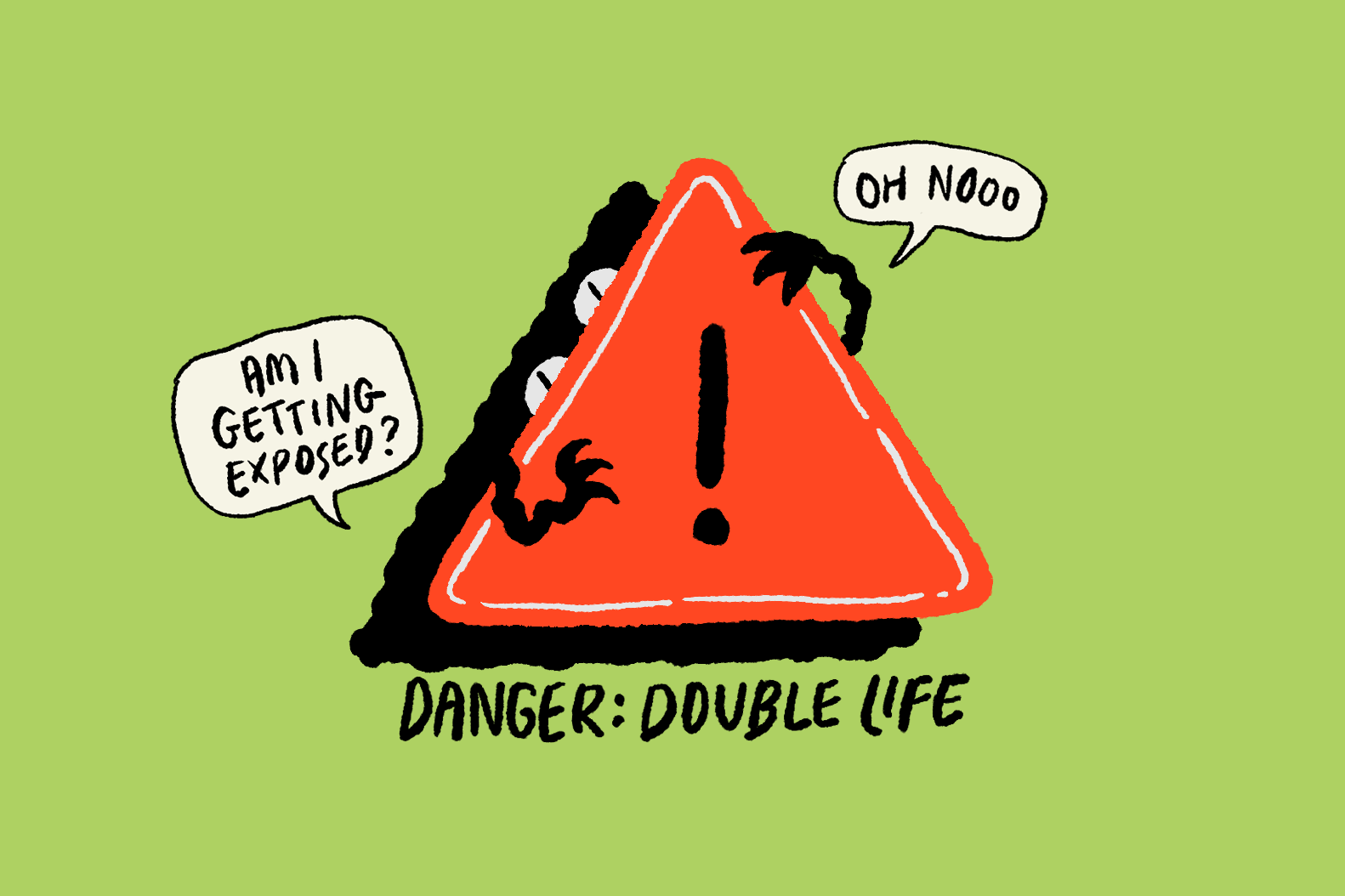That photo? That’s my happy place.
My first teh of the morning. I never say no to kaya toast. I’m meh about the eggs, but they’re part of the package.
But the real reason I’m there, what fills me up and keeps me going for the rest of the day, is the big, fat, well-worn book in the middle.
I have 4 young children, so home isn’t a good place for some quiet, undisturbed reading. Impossible when they’re awake, and unfeasible when they’re asleep. I’d have to read in the dark – there’s no corner of the house I can turn a light on without waking up some kid or the other.
So this used to be my daily routine: At 5.30am, I’d drive to the nearby kopitiam, order the classic Singaporean set, and for $2.50 I bought myself 30, 45 minutes of solitude.
Well, a pseudo psolitude. There were the early-morning uncles, watching early-morning Channel 8 in the far corner. The kopitiam cleaners, gathering up the beer bottles left behind after the previous night’s hijinks.
But they kept to themselves. Maybe they’d allow themselves a curious glance at the dude reading, like, an actual book in a coffeeshop. But I had time with the Bible, my thoughts, my God. Breakfast was a bonus.
My happy place.
(Full disclosure: My schedule has changed in the last couple of months, so I’ve lost my morning kopitiam slot. I’m trying to reclaim it, though.)

If you’re studying for an exam, you hit your textbooks. If you’re preparing for a presentation, you go over your script over and over again. If you want to learn to play the guitar, you watch instructional videos on YouTube on repeat.
When you need answers, you go to the source.
You need to figure out which college course to apply for. So you Google for reviews. You aren’t sure about the working environment of the place you’re due to intern at. So you search Twitter for signs of discontent.
When you have questions, you look for answers.
When you can’t figure out how to put that Ikea wardrobe together, you (begrudgingly, swallowing your pride) finally turn to the instruction sheet. When you just can’t get past the big boss on Level X, you hit the Web for how-to guides.
When you’re struggling, you reach out for help.
It’s all so self-evident. So why don’t we do the same with God?
How do you hear the voice of God? Read the Bible out loud.
Oh, but many will say, we do. We pray, long and hard. We try to hear Him in our worship. You read devotionals. You listen to Ravi Zacharias. Maybe you even read Thir.st (thanks!).
This is all good. Don’t stop. (Please don’t stop reading Thir.st.)
Why do we do all this? Because we want to hear the voice of God, of course. We want His advice. We want His input. We want His encouragement. We want His assurances.
So, back to that textbook. The reason you flip it open is you know the answers are there. Someone – Pythagoras, Boyle, Adam Smith – has figured it out. (Sometimes they get it wrong; I still don’t know whether Pluto is a planet or not). But, you know, you do it confident that as long as you reproduce what you learn from a textbook on your exam sheet, you’ll probably get it right.
So it is with God.
God has already spoken. In the beginning (John 1:1). The Word was God. Is God. Will forever be God.
So, you want to hear the voice of God? Prayer is crucial, but we are human, and sometimes we can’t entirely be sure of the sources of the voices we hear. It could be God. But it could be you projecting what you’d want God to say to you.
How would you know if God is really speaking to you in prayer? Just check it against the primary source. Rhema, the Spiritual Word, must always agree with Logos, the Scriptural Word, because God is always consistent.
How would you know if the devotional, or the Ravi Zacharias sermon, or even the Thir.st article you’re consuming is from God? You have to check it against the original source. Don’t believe a word you read, unless it’s the Word He himself breathed. And the only way you can do that is to be sufficiently familiar with the Bible, so you know when a word is really from God.
How do you get “sufficiently familiar” with the Bible? There are no shortcuts. You go through it precept upon precept, line upon line, a little here, a little there. A process a bit like forming a jigsaw puzzle: You painstakingly put it together piece by piece, until one day, you look up and it all comes together.
How do you hear the voice of God? Read the Bible out loud.

Biblical literacy will transform a life, a society, a generation. Knowing the Word of God, and disciplining ourselves to live by it, will ensure we are blessed (Psalm 119:1), stay pure (Psalm 119: 9), empowered to fight the urge to sin (Psalm 119:11), joyful (Psalm 119:14), shielded from scorn (Psalm 119:22), kept alive (Psalm 119:25), kept from shame (Psalm 119:31), full of hope (Psalm 119:43) … actually, you might want to read Psalm 119 for yourself.
Biblical literacy will help you keep on the straight and narrow path that leads to heaven. Need help with relationships? Try 1 Corinthians 7. Figuring out how to deal with your boss? Consider Titus 2. Struggling with seeing the meaning in life? Try Ecclesiastes. There is nothing new under the sun.
Biblical literacy will help us realise that unity is possible. Because it’ll no longer be a church/world where we’re all trying to have our opinion validated, but where we all submit to the Word that came before us (Ephesians 5:21).
Biblical literacy means you won’t be suckered into selling your house every time someone claims they know when Jesus is coming again. To help you out here, start with Matthew 24:36-44 and 2 Peter 3:10.
Those who have eyes, let them see. Train them on your Bible.
I’ll see you at the kopitiam.









